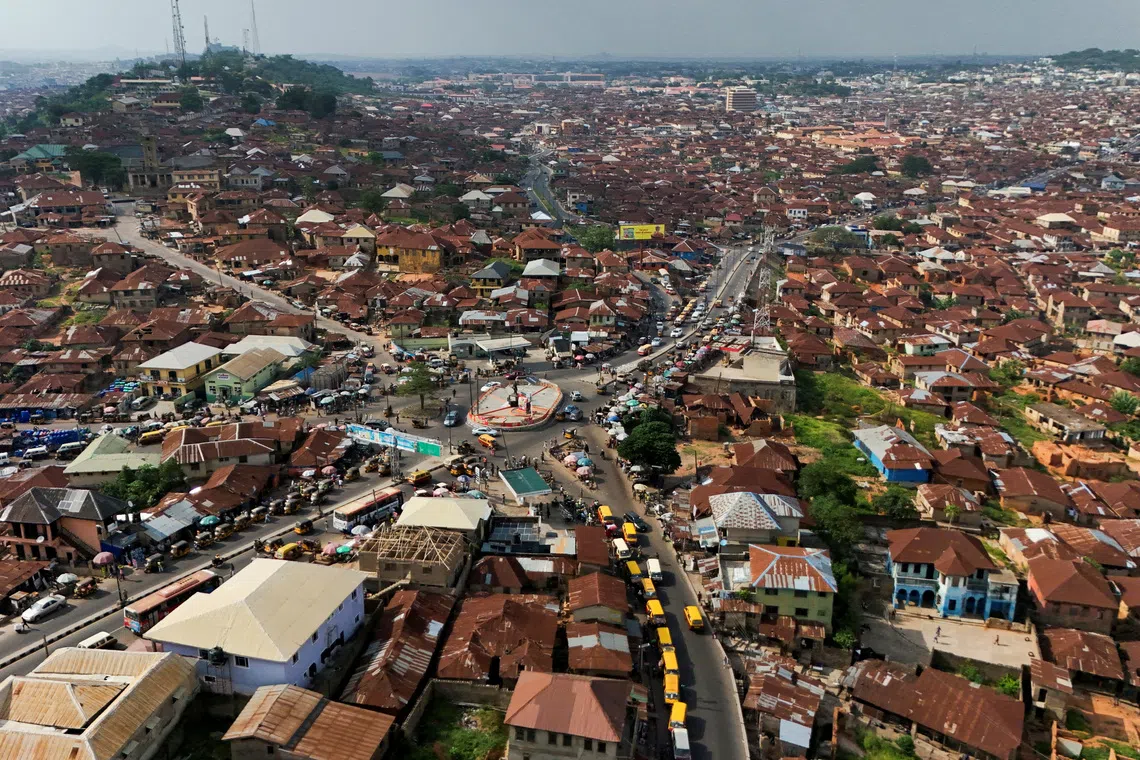US Weighs Sanctions & Pentagon Engagement to Boost Christian Protection in Nigeria Amid Religious Freedom Concerns
 Nigeria
International Politics
Nigeria
International Politics

The U.S. plans sanctions and Pentagon action to compel Nigeria to protect Christians and religious freedom. Nigeria disputes persecution claims, highlighting se
U.S. Intensifies Pressure on Nigeria Over Christian Protection and Religious Freedom
The United States is actively developing a comprehensive strategy to compel the Nigerian government to enhance the protection of its Christian communities and uphold religious freedom. This plan, revealed by a senior U.S. State Department official, involves potential sanctions from the State and Treasury Departments, alongside enhanced counterterrorism engagement by the Pentagon.
Trump Administration's Stance and Threats
This diplomatic offensive unfolds amid significant scrutiny from U.S. President Donald Trump, who previously threatened military intervention regarding the treatment of Christians in Nigeria. While Nigeria maintains that allegations of Christian persecution misrepresent a complex security situation and overlook its efforts to safeguard religious freedom, Washington remains resolute.
Jonathan Pratt, who leads the State Department's Bureau of African Affairs, informed the House of Representatives Foreign Affairs Committee that the Trump administration’s plan seeks to "incentivize and compel" improved protection for Christian communities. He further clarified that the U.S. is closely examining the security assistance provided to Nigeria, the deployment of its assets, and the crucial sharing of intelligence.
Nigeria on "Countries of Particular Concern" List
In October, President Trump reinstated Nigeria onto the contentious "Countries of Particular Concern" list, citing persistent religious freedom violations. Furthermore, he reportedly instructed the Defense Department to prepare for possible "fast" military action should Nigeria fail to curb the killing of Christians, simultaneously halting all aid to the West African nation.
Complex Security Landscape in Nigeria
Nigeria, a nation rich in diversity with 200 ethnic groups practicing Christianity, Islam, and traditional religions, boasts a long history of peaceful coexistence. However, this harmony has been periodically disrupted by violence, often exacerbated by ethnic divisions or conflicts over scarce resources. Compounding these challenges, the extremist Islamist group Boko Haram has terrorized northeastern Nigeria for 15 years, leading to tens of thousands of deaths. Human rights experts have observed that Boko Haram has tragically claimed more Muslim lives than Christian ones.
Nigerian Delegation Engages Washington Officials
A high-level Nigerian delegation, including the national security adviser, defense chief, chief of defense intelligence, and head of police, recently undertook a visit to Washington. Their itinerary included meetings with U.S. Deputy Secretary of State Christopher Landau and officials at the Pentagon. Pratt also affirmed his belief that the Nigerian government has not been infiltrated by jihadists.
Call for Further Action
Jacob McGee, Deputy Assistant Secretary for the Bureau of Democracy, Human Rights, and Labor, underscored that while Nigeria's designation as a "Country of Particular Concern" has captured the attention of its government, substantial additional action is necessary. He emphasized, "We are planning engagement on the ground, both through our embassies there and other trips, to make sure Nigerians hear our very important message that they have to do better."